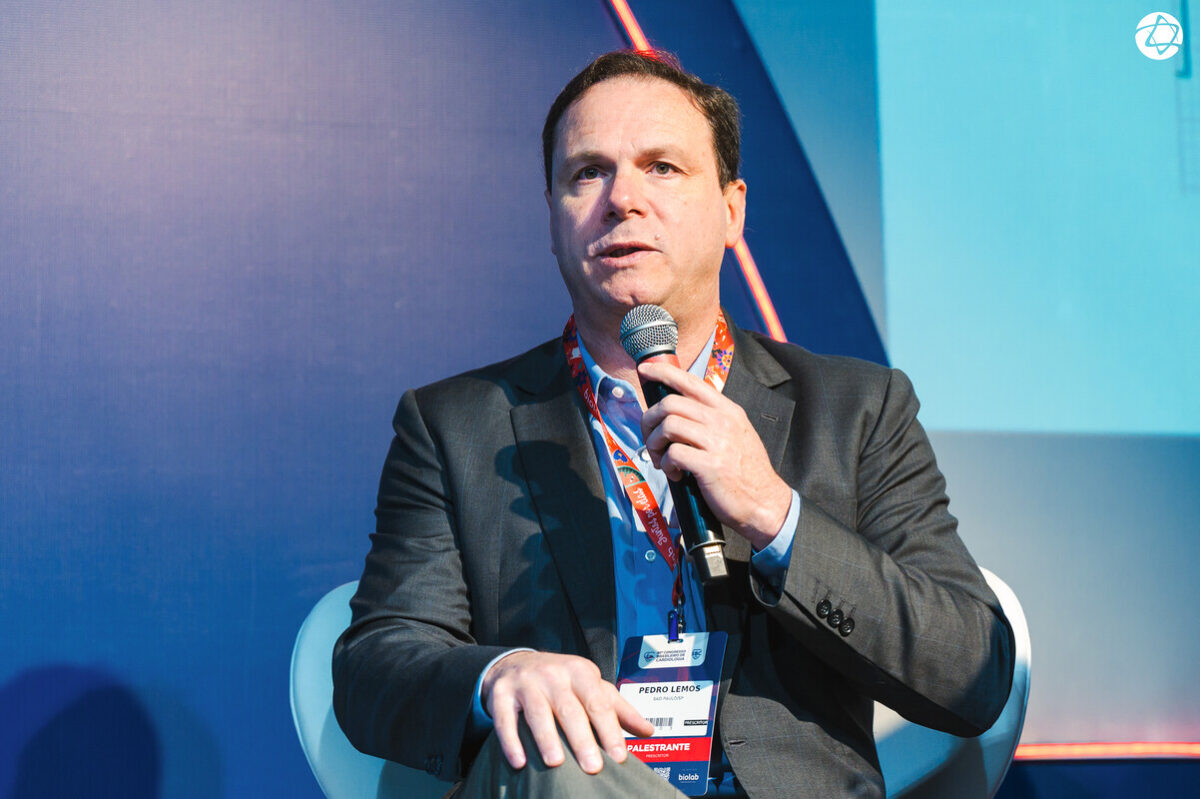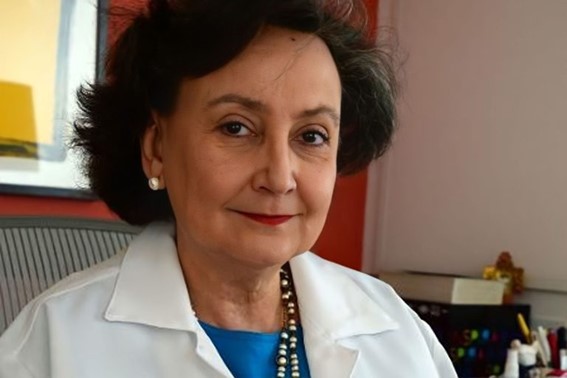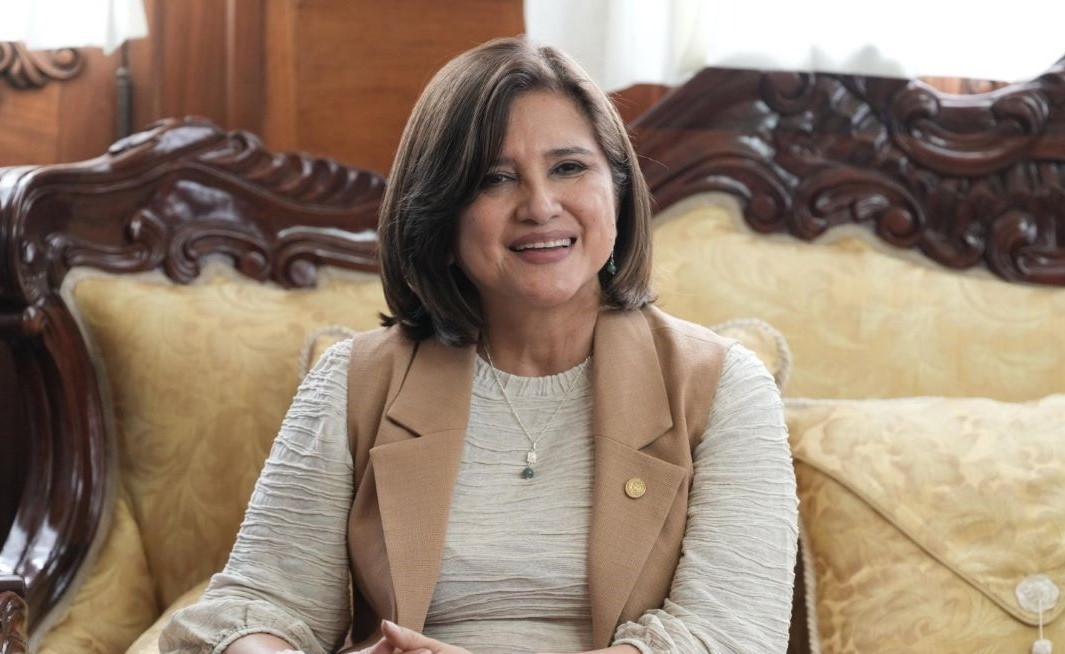 #Interviews
#Interviews
Margareth Dalcolmo: “We live with the consequences of disinformation”
FIOCRUZ researcher says publication of fake news needs to be tackled, including within the medical class
 "The medical community should have a presence across all means of
communication, informing and engaging clearly and accurately with the population,"
says Margareth Dalcolmo, of the Oswaldo Cruz Foundation (FIOCRUZ) | Image: Peter Ilicciev/Publication
"The medical community should have a presence across all means of
communication, informing and engaging clearly and accurately with the population,"
says Margareth Dalcolmo, of the Oswaldo Cruz Foundation (FIOCRUZ) | Image: Peter Ilicciev/Publication
The 2023 edition of the research project “Public perception of C&T in Brazil,” conducted by the Center for Management and Strategic Studies (CGEE), reveals that health is one of the most significant themes of public interest, despite it being a battlefield among producers of disinformation: communication mediated by biased algorithms through social networks and vaccine denialism.
Eight of every ten young people interviewed during this study say that they get their science information mainly from Instagram and YouTube. According to research conducted by the University of Campinas (UNICAMP), one-third of the most-watched Portuguese-language channels on YouTube about vaccines carried errors or disinformation.
Sabine Righetti, a journalist and researcher at UNICAMP’S Laboratory of Advanced Studies on Journalism (LABJOR), points out that on alternative channels about healthcare, the disinformation streamed in the videos indicated that the vaccines had dangerous components, and defended freedom of choice, promotion of alternative healthcare services, and the conspiracy theory that vaccines cause illnesses.
“Research into perceptions of science is fundamental for the definition of public policies in the area,” says Righetti, who with data scientist Estevão Gamba coauthored the book Negacionismo científico e suas consequências (Scientific denialism and its consequences)(Edições 70), released in April. “We need to understand how people comprehend, become interested in, and value science. What the studies show is a huge ‘detachment’ between science and society.”
In addition to Righetti, Science Arena discussed the CGEE research results with pneumologist Margareth Dalcolmo, a researcher at FIOCRUZ in Rio de Janeiro and standing member of the Brazilian National Academy of Medicine.
Since the onset of the COVID-19 pandemic in 2020, Dalcolmo has stood out for her ability to communicate with the public through the media and explain, simply and directly, the impact of the Sars-CoV-2 virus on people’s health.
The researcher became one of science’s key spokespersons throughout the pandemic, and is active in tackling antivaccine movements in Brazil. In this interview, Dalcolmo talks about the risks of fake news and how to tackle disinformation between physicians and other healthcare professionals.
Science Arena – The CGEE study indicates that mistrust among the Brazilian population in relation to vaccines reached a high rate (20.9%) in 2023. Does this trigger any alarms?
Margareth Dalcolmo – It’s undeniable that health has been a theme of great interest over recent years, both for good and for bad. In Brazil, we face paradoxical phenomena: Historically, the Brazilian population always had great trust in vaccines and the National Immunization Program (PNI), created 50 years ago—a success story with overwhelming acceptance by civil society.
Unfortunately, due to some very harmful rhetoric championed by the last federal government administration, added to concerns over a new illness such as COVID-19 and the speed with which vaccines were developed, there were unprecedented fear of and resistance to vaccines.
The truth is, we are facing the consequences of disinformation and fabrication of fake information on vaccines. This is a real, undeniable issue.
What is the result of that?
The phenomenon gave rise to a fall in overall vaccination rates, including against flu. Paradoxically, in 2020 we had the highest rate of Brazilians vaccinated against influenza, as the population believed that it could also protect them against COVID-19, which is not true.
This year we are seeing a very unusual situation—the lowest take-up rates for flu vaccinations. There are surplus vaccines and this is exacerbated by the fact that the immunization rate against COVID-19 was also very low. Only 55% of the Brazilian population has had all the full doses.
This is a very small number and raises concerns, primarily in terms of pediatric vaccines, demonstrating that many families were contaminated by this discourse, this extremely toxic rhetoric.
Five in every ten Brazilians report frequently coming across news that appears to be false. In your opinion, has the healthcare field seen a growing increase in the dissemination of fake news?
For sure. Healthcare, much more than the economy, is something that “touches” people individually. There is no doubt that there is a very strong force of persuasion, because all are interested in the health and well-being of their family, their children, their parents.
Health is something that personally affects each individual. There is no doubt that fake news has become a source of content, especially during the pandemic
It was at that moment that false content sites began to flourish, very sadly with the participation of physicians.
The CGEE research also assessed more technical knowledge. For example, knowing whether antibiotics can kill off viruses—erroneous information with which more than half the respondents agreed. In medical practice, how much can this type of ignorance affect treatment take-up and trust in healthcare professionals?
The spreading of this information, including among physicians, led to the excessive use of antibiotics during the pandemic, in turn giving rise to very considerable rates of antimicrobial resistance. This use was oftentimes not only unnecessary, but also inappropriate, as the illness in question was viral, with a predominant inflammatory component.
In fact, the patient develops a secondary, opportunistic bacterial infection, added to a viral process with expressive release of cytotoxic substances and inflammatory cytokines.
Most Brazilians said they have never or rarely sought information on science. However, social networks are information access champions. Do you believe that this kind of communication mediated by algorithms is a challenge that can be overcome? How can healthcare take a leading role in tackling disinformation?
Certainly; the healthcare segment can be at the forefront, but to achieve that, the participation of physicians who inspire public confidence is paramount.
We must be ever-present, continually informing society.
In fact, I believe that there has never been such a pressing need for scientists and researchers to rescue this trust, which is traditional in our culture. It’s crucial to keep this going, even when the news is bad, without causing alarm or panic; disseminating the truth without ignoring natural fears among society.
What needs to be done, based on data from this national research project, to prepare for the next pandemic in terms of public perception of science?
The medical community needs to be present in all means of communication, clearly and accurately informing dialogue with the population, as has been the case for electronic cigarettes.
The tobacco industry, for example, publishes false information, gaining people’s trust; so, it is important that physicians are present and active in tackling disinformation. We need to communicate with discipline and truth, regardless of whether the news is good or bad.
*
This article may be republished online under the CC-BY-NC-ND Creative Commons license.
The text must not be edited and the author(s) and source (Science Arena) must be credited.


